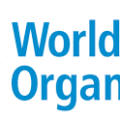According to a new article published by Bloomberg obesity is now a health crisis in Africa . Most times when people think health issues in Africa, people think of chronic hunger, or infectious diseases such as malaria or HIV/AIDS. But Africa is simultaneously struggling with an increase in noncommunicable diseases, most of them related to obesity.
The recently published Global Wellness Index set alarm bells ringing when South Africa scored poorly for life expectancy, alcohol use, depression and diabetes. When stacked up alongside the G20 nations and the 20 most populous countries, South Africa – once a shining beacon of economic growth – came last. But for anyone who has worked in health care in the country, or elsewhere in Africa, this is no surprise at all.
South Africa is not alone in facing these challenges. Other parts of Africa have some of the highest rates of high blood pressure in the world, estimated to afflict 46 percent of adults, while obesity, another risk factor, is on the increase.
According to a FIFA 2018 World Cup Scorecard on Obesity conducted among the 32 countries participating in the World Cup finals, Nigeria ranks among countries with lower obesity prevalence but has the highest rates of growth in overweight and obese adults. A study published in the Nigerian Journal of Clinical Practice reported that Obesity, and overweight were found in 17% and 31%, of participants respectively. It noted that while underweight declined with increasing age, overweight, and obesity increased to peak in the middle age brackets. Age of ≥ 40 years was found to confer about twice the risk of becoming overweight. The prevalence of obesity and mean BMI were significantly higher both among the females and the participants from southern zones. Another study concluded that the prevalence of overweight and obese individuals in Nigeria is of epidemic proportions.
According to a Kenyan government survey more than 40 percent of women aged 30 to 40 are overweight or obese. According to the World Health Organization, noncommunicable diseases (or NCD for short) kill 41 million people each year, equivalent to 71 percent of all deaths globally. Cardiovascular diseases account for most NCD deaths, followed by cancer, respiratory diseases and diabetes. Many of the risk factors — tobacco use, physical inactivity, the harmful use of alcohol and unhealthy diets — are particularly prominent in parts of Africa. A quarter or more of adults in many African countries have at least three of these four risk factors. Most of these adults are women aged 45 to 64. READ Components of primary health care in Nigeria
One of the main causes are dietary habits that include too many refined carbohydrates, oils and sugars that have come with the proliferation of convenience foods. In addition, there is a traditional belief that excess weight is a symbol of prosperity and wealth. Often obese people are unaware of the risks until told by doctors, and most of them say they wish they had known about it earlier.
Aside from the medical issues, treatment of NCDs often imposes a large financial burden on patients’ relatives and friends. When I first came to Africa as a rural development officer for the Japan International Corporate Agency seven years ago, I was surprised that many people, including strangers, often asked me for financial help. I later realized that giving monetary help is quite a natural thing in Africa. Even the poor are willing to give money to help others. In Kenya, the practice is called “harambee,” which means to work together to overcome difficulties.





